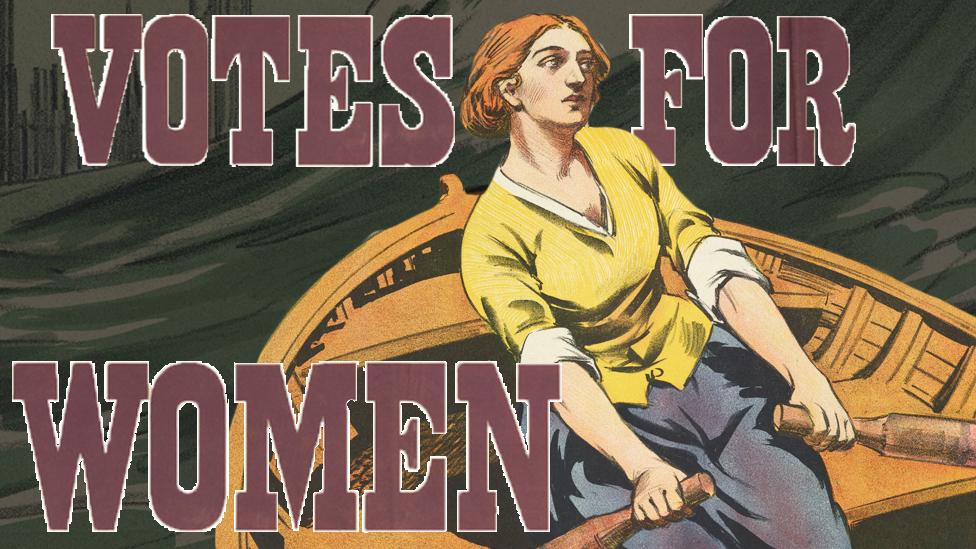Suffragette's hunger strike medal found after 100 years
- Published
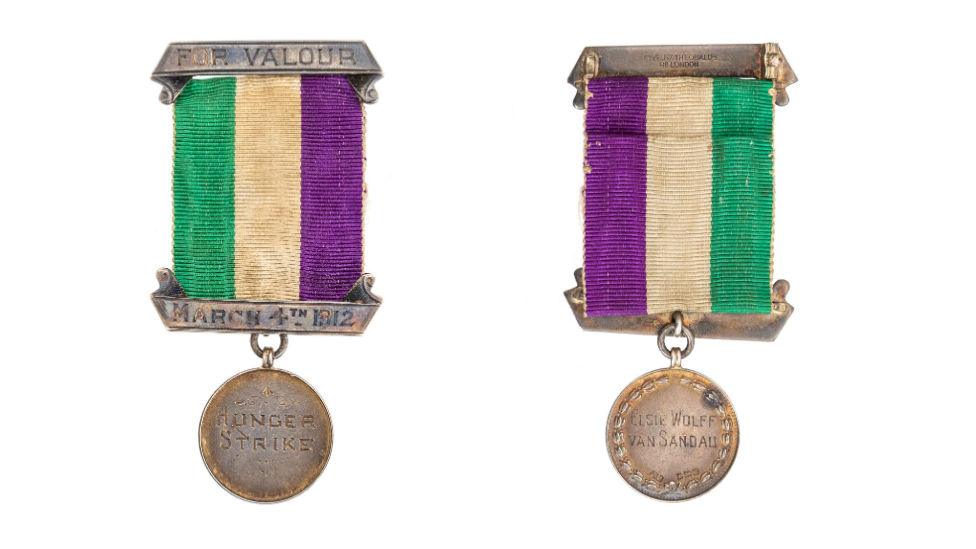
The medal was awarded to Elsie Wolff Van Sandau by the Women's Social & Political Union
A hunger strike medal awarded to a suffragette who refused to eat while on trial has been discovered after more than 100 years.
The medal, which was found in a drawer, had belonged to Elsie Wolff Van Sandau.
Miss Sandau was arrested after allegedly smashing a window during an organised campaign on 4 March 1912 and later went on hunger strike.
The medal for valour will be auctioned on 27 June in Derbyshire and is estimated to go for £7,000 to £10,000.
Miss Sandau had also been arrested on 18 November 1910 during the Black Friday riots, where about 300 suffragettes met a wall of policemen outside Parliament.
Heavily outnumbered, the women were assaulted by both police and male vigilantes in the crowd. Many sustained serious injuries and two women died as a result. More than 100 suffragettes were arrested.
The auctioneers said they did not know what happened to Miss Sandau after the trial and hunger strike.
Miss Sandau's medal, from the Women's Social & Political Union, was discovered in a house in East Sheen, south-west London, by sisters Anne Alford, of Twickenham, and Joan Woolman, 61, from Leicestershire, while clearing out their father's house.
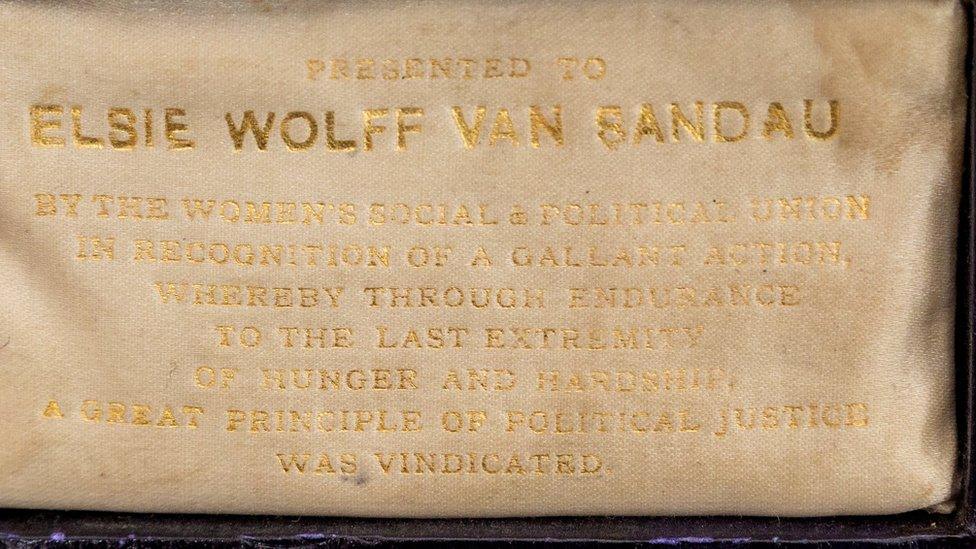
The medal is in its original case which includes writing praising Miss Sandau for vindicating "a great principle of political justice"
Although they remember the medal from decades ago, the sisters said they were unclear about its connection to their family.
Mrs Alford, 64, said two great aunts lived with their family and they wondered if they may have known Miss Sandau or been connected to the suffragette movement.
Mrs Alford said her parents and two great aunts are no longer alive.
She said: "I've done as much research as I can about Elsie, but how our family came to own the medal is something of a mystery."
It will be sold on 27 June at Hansons Auctioneers in Etwall.

Follow BBC East Midlands on Facebook, external, Twitter, external, or Instagram, external. Send your story ideas to eastmidsnews@bbc.co.uk, external.
- Published24 November 2018
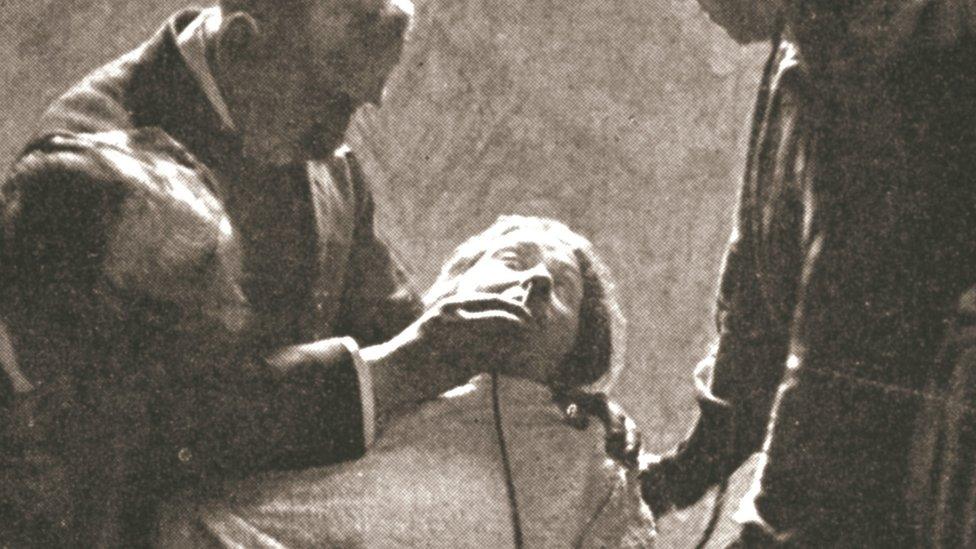
- Published25 July 2018
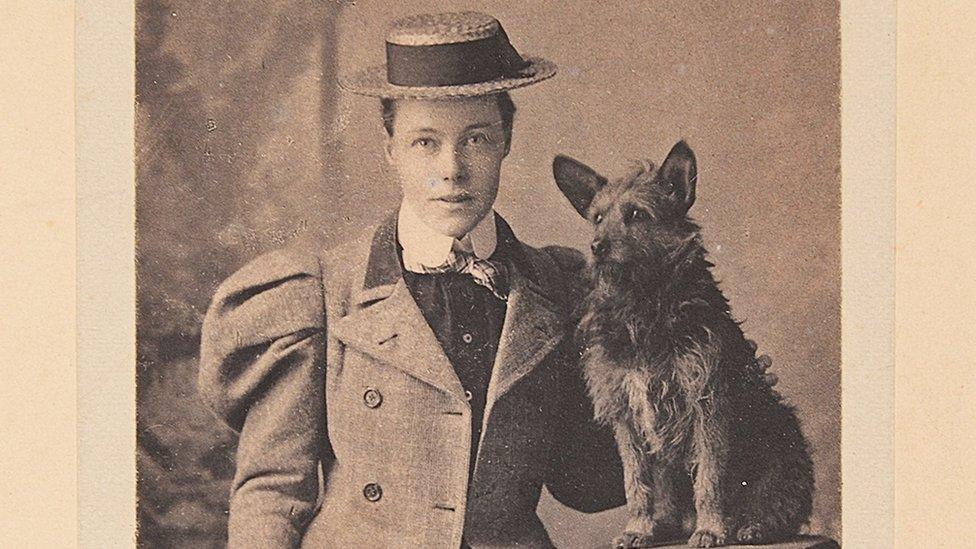
- Published27 May 2018
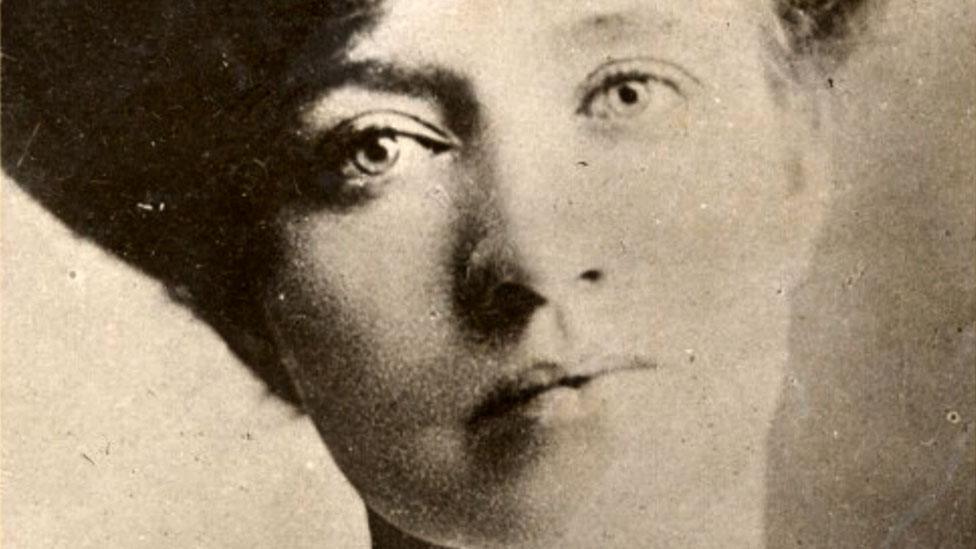
- Published2 February 2018
